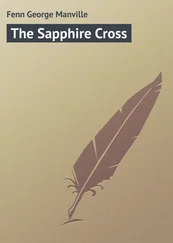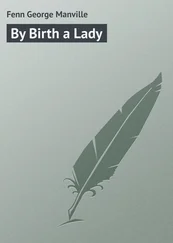George Fenn - A Double Knot
Здесь есть возможность читать онлайн «George Fenn - A Double Knot» — ознакомительный отрывок электронной книги совершенно бесплатно, а после прочтения отрывка купить полную версию. В некоторых случаях можно слушать аудио, скачать через торрент в формате fb2 и присутствует краткое содержание. Жанр: foreign_prose, на английском языке. Описание произведения, (предисловие) а так же отзывы посетителей доступны на портале библиотеки ЛибКат.
- Название:A Double Knot
- Автор:
- Жанр:
- Год:неизвестен
- ISBN:нет данных
- Рейтинг книги:4 / 5. Голосов: 1
-
Избранное:Добавить в избранное
- Отзывы:
-
Ваша оценка:
- 80
- 1
- 2
- 3
- 4
- 5
A Double Knot: краткое содержание, описание и аннотация
Предлагаем к чтению аннотацию, описание, краткое содержание или предисловие (зависит от того, что написал сам автор книги «A Double Knot»). Если вы не нашли необходимую информацию о книге — напишите в комментариях, мы постараемся отыскать её.
A Double Knot — читать онлайн ознакомительный отрывок
Ниже представлен текст книги, разбитый по страницам. Система сохранения места последней прочитанной страницы, позволяет с удобством читать онлайн бесплатно книгу «A Double Knot», без необходимости каждый раз заново искать на чём Вы остановились. Поставьте закладку, и сможете в любой момент перейти на страницу, на которой закончили чтение.
Интервал:
Закладка:
It was a depressing room, without a particle of ornament, and would have produced indigestion in the healthiest subject. There was a circular sideboard at one end, upon which stood a solemn-looking lamp, whose globe made a dismal boom like a funeral knell when it was removed. Twelve spindly-legged chairs covered with chintz of a washed-out material stood stiffly against the walls, and there were two uneasy chairs covered with chintz and very angular in their backs on either side of the fire, where hung a pair of old-fashioned brass bellows and a worn-out telescope toasting-fork.
As the young ladies entered the room, looking as prim and demure as the chintz-covered chairs, a thin sharp cough was heard on the stairs, followed immediately by another thin sharp cough like the echo of the first, and two very tall meagre ladies entered the room.
Each was dressed in a pale washed-out fabric, with voluminous sleeves tight at the wrists, and had her grey hair in a large cluster of curls at the temple, the back hair being kept in place by a large tortoiseshell comb similar in shape to the leather withers protector carried on the collar by the horses in a brewer’s dray.
There was a pinched, refined air about the aspect of their faces, as if they had led ascetic lives in an aristocratic shade; and as they entered the room side by side, the young ladies approached them, and were received with an old-fashioned courtly grace such as was probably presumed to be correct within these palatial walls.
“Good-morning, aunt dear,” was said to each in turn by the young ladies, in return for which a little birdlike peck of a kiss was given to each soft round face, after which there was silence, each one waiting till there was a scuffle outside, and a little angry muttering, all of which was entirely ignored by the tall, thin, pale ladies, who stood with their mitten-covered hands crossed in front of them, and their eyes cast down.
Everything was so chilly, in spite of its being a warm spring morning, that the advent of a very old and battered but very hot bronze urn seemed quite to send a glow through the room as it was whisked in by the thin young man and placed upon the table, to hurry out and return directly with a crockery toast-rack, full of thin, dry husks of mortified half-burned bread.
Meanwhile, Sister Philippa unlocked a tea-caddy, while Sister Isabella let some hot water run into the pot, and poured it out into the pale blue-and-white cups.
Two caddy-spoonfuls were then placed in the pot, which was duly filled, and Sister Philippa said with grave austereness:
“My dears, will you take your places?”
Then in utter silence the three girls came to the table, and partook with their aunts of the very thin tea, sweetened with no liberal hand, while the bread-and-butter looked untempting and stale.
This went on for some few minutes, every act in connection with the breakfast being performed with scrupulous attention to etiquette, as taught in the highest old-fashioned circles.
“May I give you a little more tea, Clotilde?”
“Will you have the goodness to pass the bread-and-butter, Marie?”
“Ruth, I will trouble you, my dear, for the dry toast.”
After awhile Sister Philippa started an enlivening conversation on the number of drawing-rooms that were held by her late Majesty Queen Adelaide at which they were present as girls, Sister Isabella being of our opinion that the Court dresses of that period of history were much more modest, refined and graceful than those of to-day.
Sister Philippa agreed to this, and with her agreement the breakfast came to an end.
“We will take our morning’s walk, my dears, at once, as it is fine,” said Sister Philippa. “Will you go and dress?”
“Yes, aunt,” was chorused, and the young ladies rose, curtsied, and retired backwards from the room, to ascend to their chamber, through which Ruth had to proceed to get into the cupboard which held her bed and a small chest of drawers.
The moment they were inside the room, Clotilde rushed into the middle, gritting her teeth together and clenching her fists.
“Oh-h-h!” she exclaimed, with a cry of suppressed passion, “I can’t bear it. I shall go mad.”
Then with a bound she dashed to the bed, striking at it and seizing the pillow in her teeth.
Marie got rid of her suppressed vitality by fiercely seizing Ruth by the shoulders, shaking her angrily, and then, as if repenting, catching her about the waist, and waltzing her round the room.
“Oh, Clo! it’s horrible,” she cried, loosing Ruth to seize her sister. “Get up, and let’s quarrel or fight, or do something. I can’t – I won’t – I shan’t – I will not bear it. It’s like being mummies in a tomb.”
Clotilde turned round, and let herself sink upon the floor, with her head leaning back against the bed, biting the counterpane and twisting it viciously with her hands.
“’Rie,” she said at last, and her eyes sparkled as she spoke, “do you know what happened in the old days to the captive maidens in the stony castles?”
“Yes; the knights came and rescued them.”
“Then, why don’t they come and rescue us? I’ll run away with the first man who asks me. I’d marry that thin wretch Joseph to-morrow if he’d have me, and I’d stick pins in him all the rest of his life to see him writhe.”
“I can’t bear it much longer,” said Marie, in a low, deep voice; “I’m nineteen, Clo, and you are turned twenty, and they treat us as if we were little children still. Ah, how I hate them both!”
“Oh, Marie,” said Ruth reproachfully, “how can you say so!”
“Because I do – I do,” she cried. “I’m not a soft, smooth thing like you. If this lasts much longer I shall poison them, so as to be hung out of my misery.”
“I shan’t,” said Clotilde. “I say I’ll marry the first man who asks me. I will marry him; I’ll make him marry me; and then – ah,” she cried fiercely, as she started up, and began pacing up and down, beautiful as some caged leopard, “once I am free, what I will do! We might as well be nuns.”
“Better,” cried Marie angrily, “for we should be real prisoners, and expect no better. Now we are supposed to be free.”
“And there’d be some nice fat old father confessors to tease. Better than the smooth-faced, saintly Paul Montaigne. Oh, how I would confess!” cried Clotilde.
“Old Paul’s a prig,” said Marie.
“He’s a humbug, I think,” said Clotilde.
“Bother your nice old fat father confessors,” cried Marie, with her eyes gleaming. “I should like them to be young, and big, and strong, and handsome.”
“And with shaven crowns,” said Clotilde maliciously. “How should you like them, Ruth?”
“I don’t know,” said Ruth simply. “I have never thought of such a thing.”
“Take that, and that, you wicked story-teller!” cried Clotilde, slapping her arms; “I know you think more about men than either of us. For my part, the man I mean to have will – ”
She stopped, for Marie laid her hand upon her lips, and they both began to prepare themselves for their walk as the grave-looking woman entered the room.
“Oh, you’re not ready, then?” she said grimly.
“No, nurse; but we shall be directly.”
“No, you needn’t; you’re not going.”
“Not going, nurse? Why?”
“The new Lancer regiment is coming to the barracks this morning, and your aunts say some of the officers may be about.”
Volume One – Chapter Two.
His Uncle’s Nephew
“Why didn’t I come? Why should I? Very kind of Lady Millet to ask me, but I’m not a society man.”
“Oh, but – ”
“Yes, I know, lad. Did the affair go off well?”
Читать дальшеИнтервал:
Закладка:
Похожие книги на «A Double Knot»
Представляем Вашему вниманию похожие книги на «A Double Knot» списком для выбора. Мы отобрали схожую по названию и смыслу литературу в надежде предоставить читателям больше вариантов отыскать новые, интересные, ещё непрочитанные произведения.
Обсуждение, отзывы о книге «A Double Knot» и просто собственные мнения читателей. Оставьте ваши комментарии, напишите, что Вы думаете о произведении, его смысле или главных героях. Укажите что конкретно понравилось, а что нет, и почему Вы так считаете.












